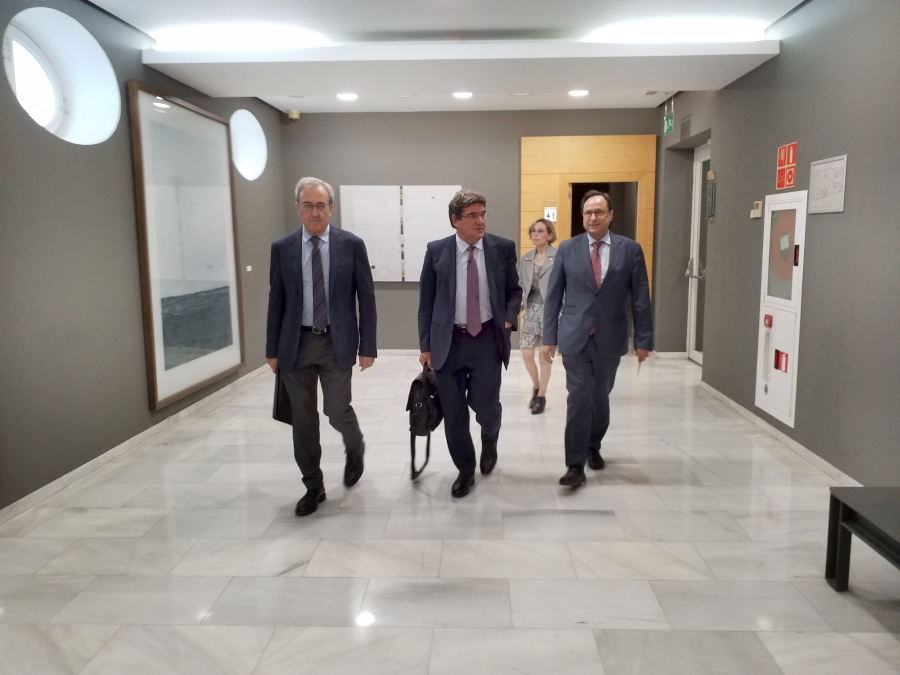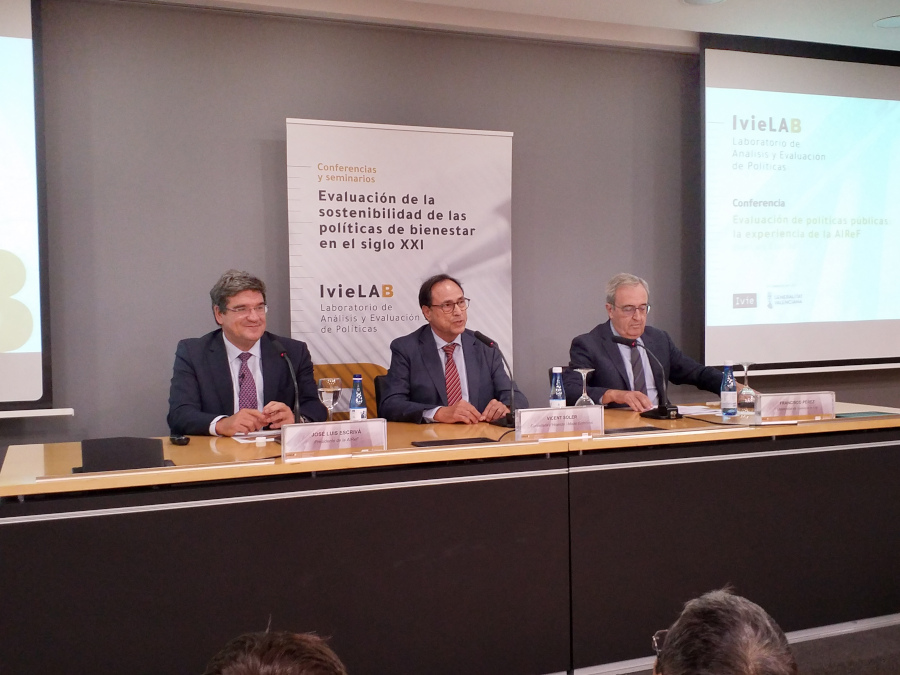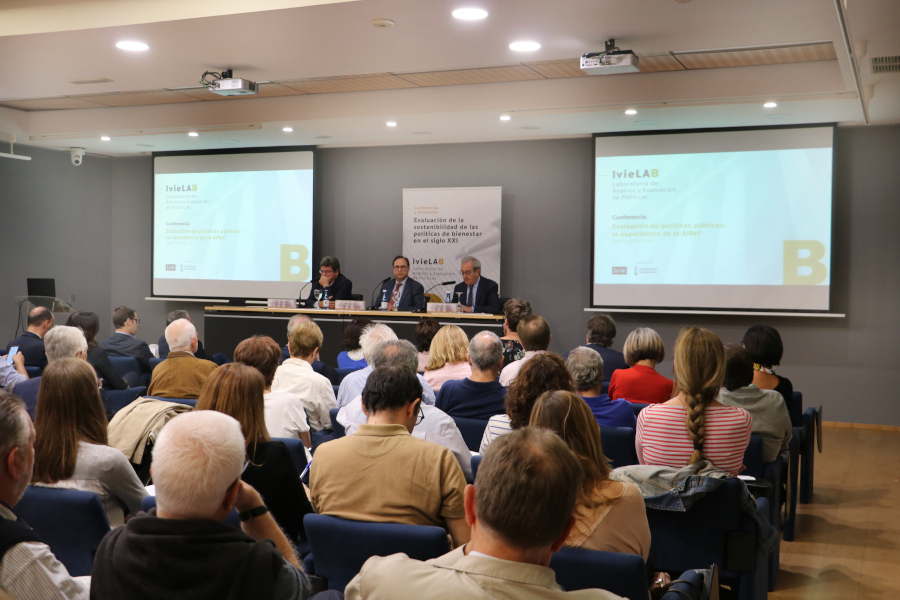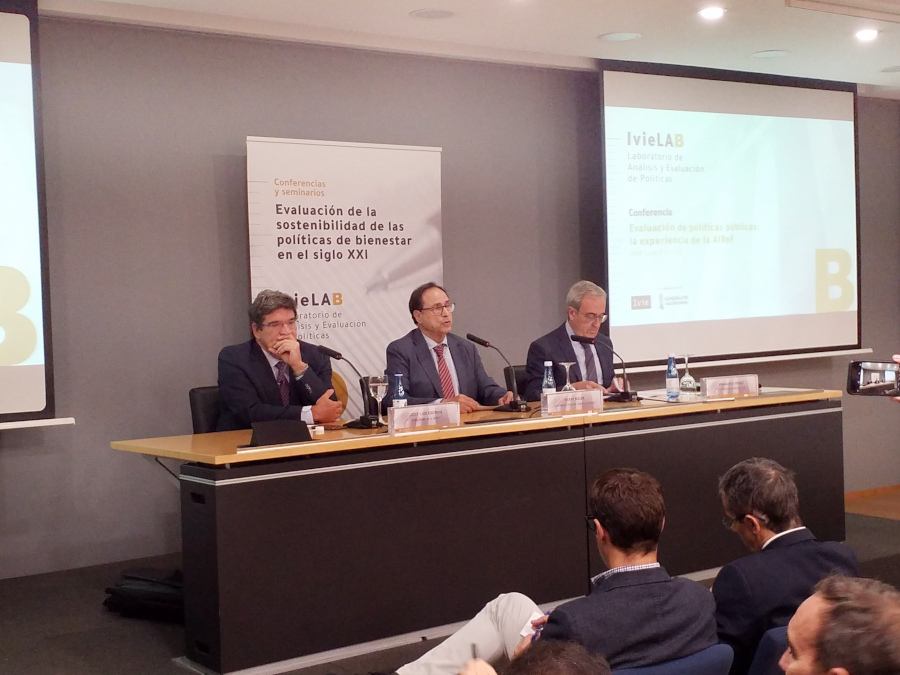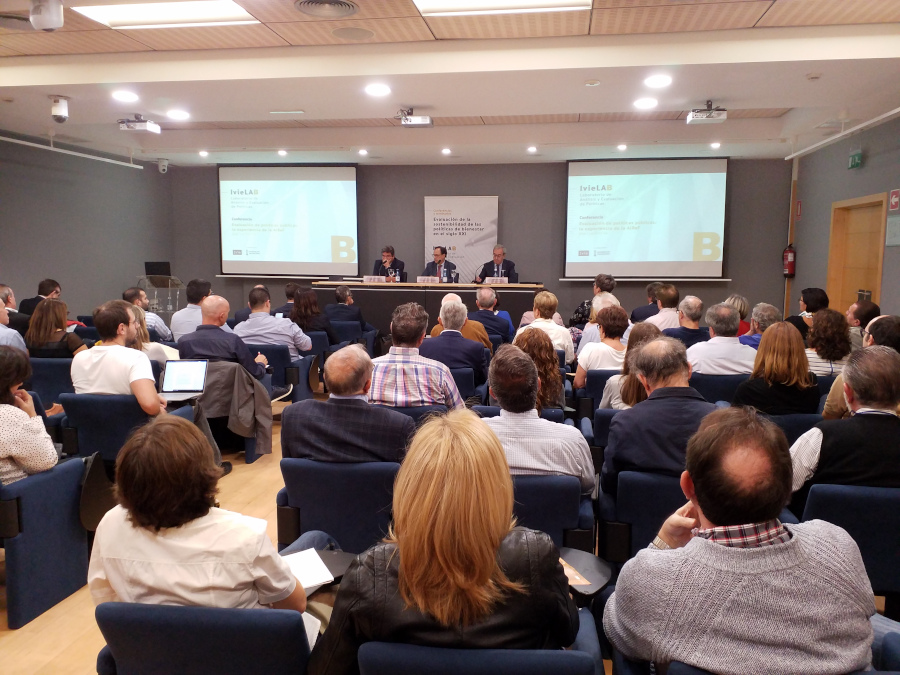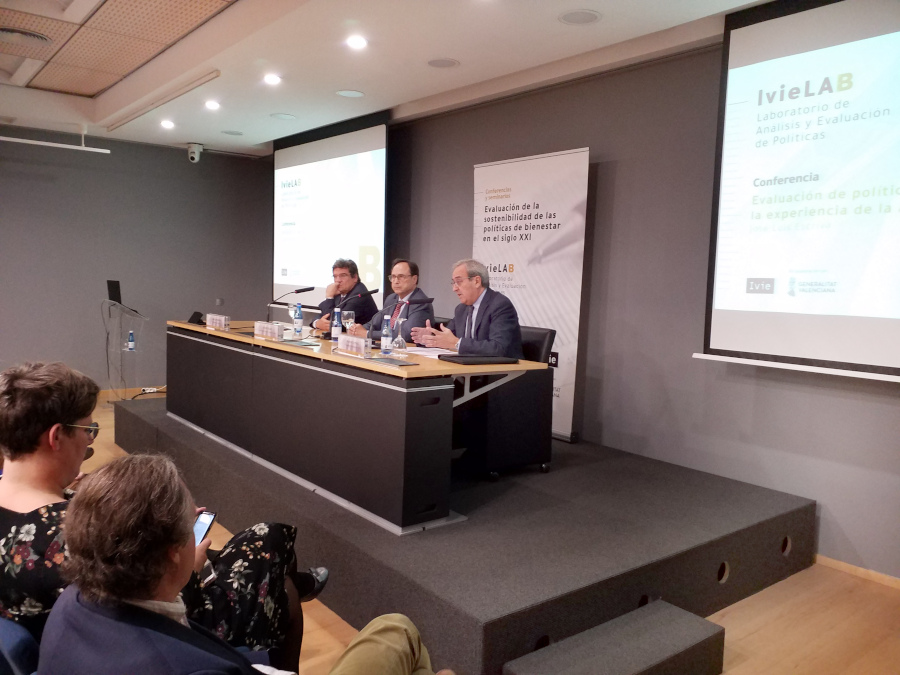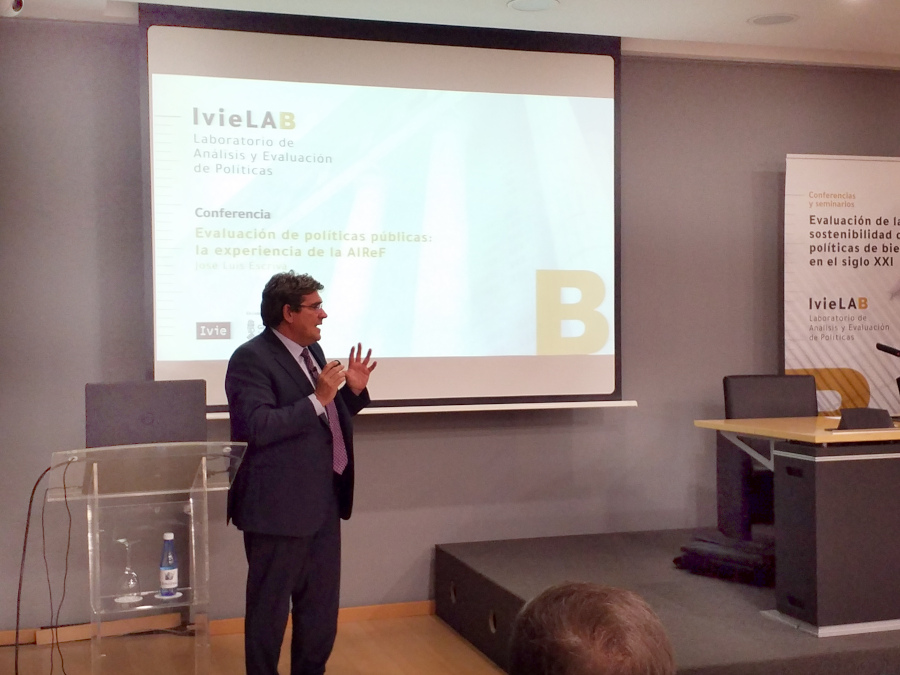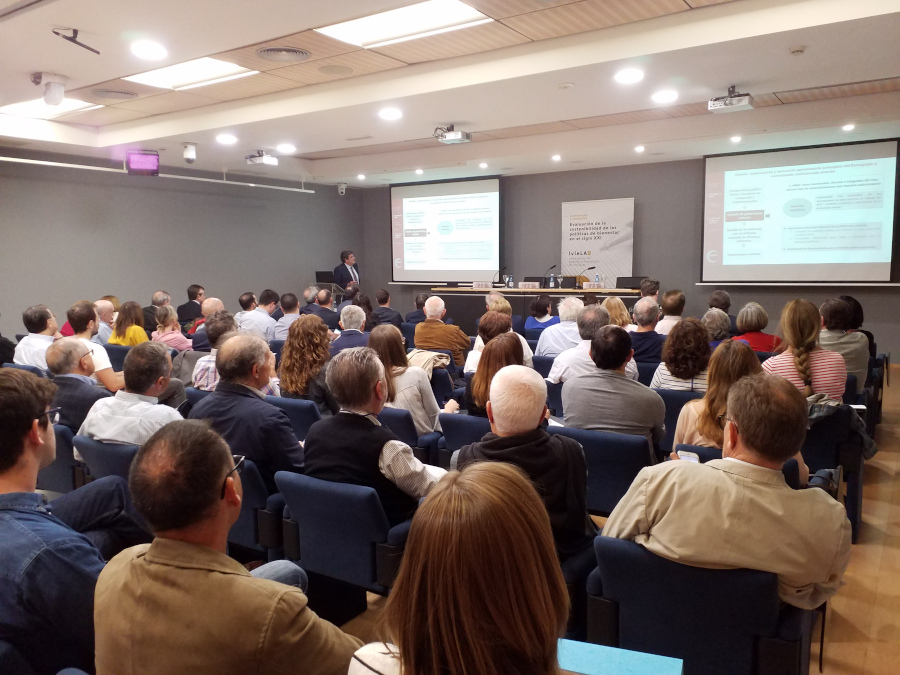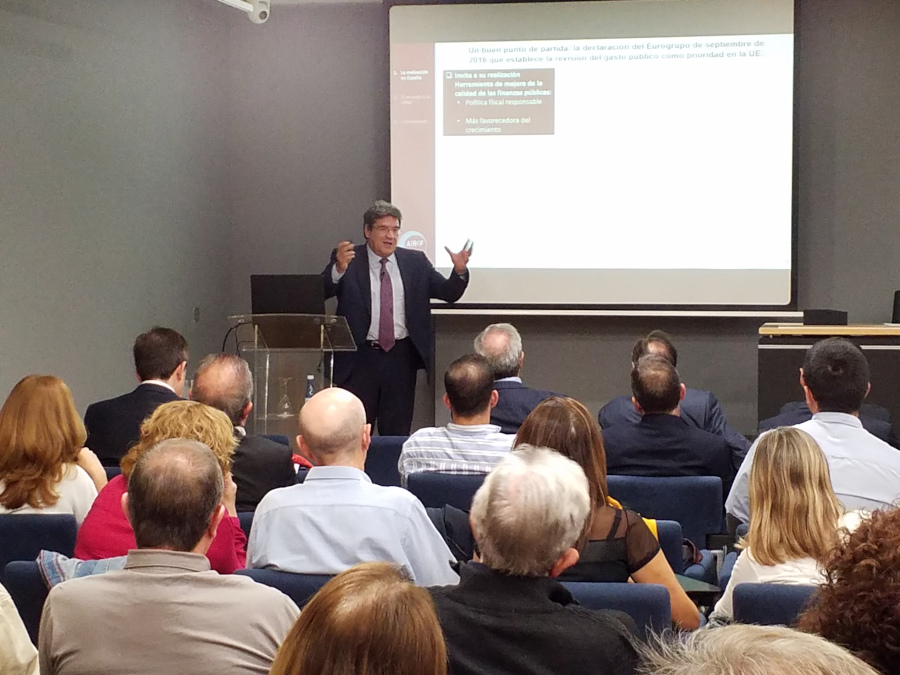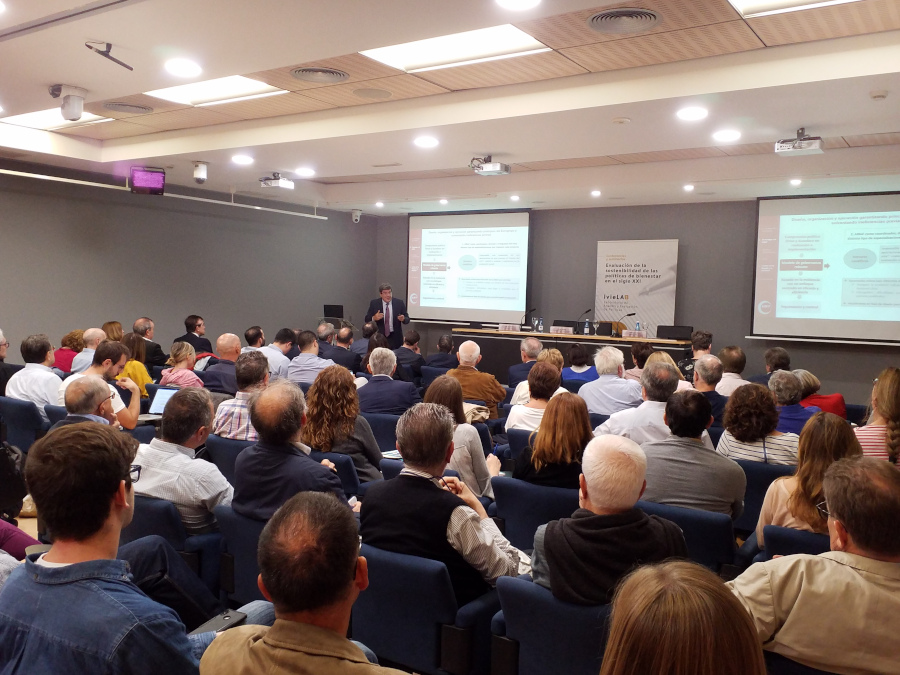News
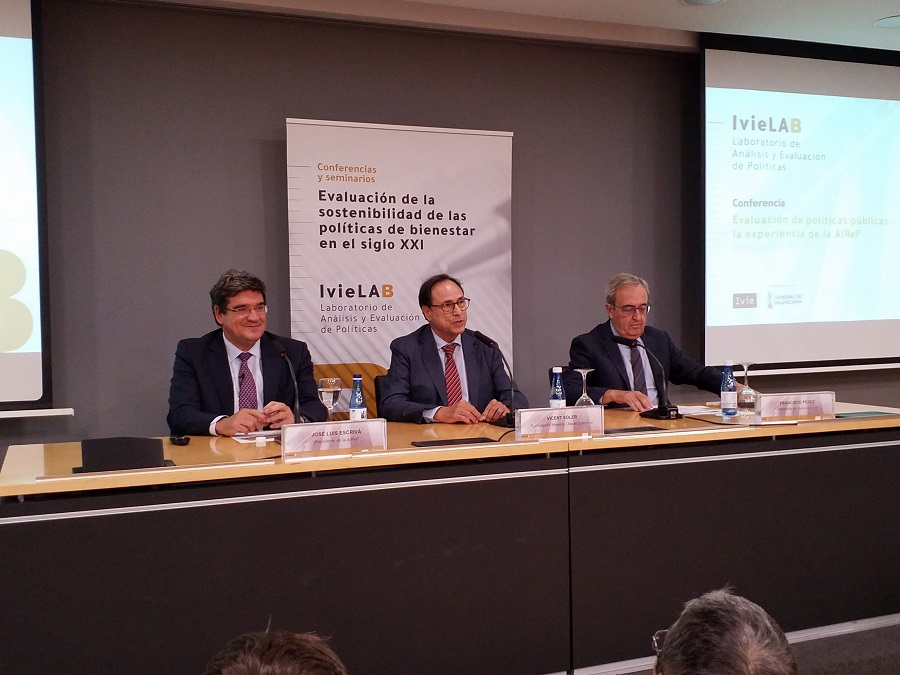
José Luis Escrivá defends the need to improve public policy evaluation in Spain
In the last of the 2019 IvieLAB series of talks, the president of AIReF explained the Spanish government’s commission to evaluate public expenditure in Spain, currently in its second stage of development
At a conference in Valencia, the president of AIReF, José Luis Escrivá, cited a lack of access to data, methodological problems, poor implementation of recommendations –which, in any case, are not sufficiently well communicated– and the fact that evaluation of results is not included in public policy budgeting processes as just some of the factors that indicate defective evaluation policies in Spain. In his talk –part of the IvieLAB (Laboratory for the Analysis and Evaluation of Public Policy) series promoted by the Ivie and the Valencian regional government– Escrivá also explained that defective evaluation policies not only affect public control and inspection bodies but also private and academic consultants.
The European Union requested an evaluation of public spending from Spain (and also from Belgium, France, Malta and Portugal), which the government commissioned from AIReF. Escrivá explained that the focus of the first phase was a review of public spending, while a second part, currently underway with the participation of the Ivie, involves evaluation of transport infrastructure policies. Being evaluated is spending of about 70,000 million euros per year (6% of GDP), including hospital expenditure (2,080 million), employment incentives (2,300 million), transport infrastructure (5,500 million) and tax breaks (55,000 million).
In Escrivá’s opinion, political commitment has been achieved, although “it was necessary to overcome public administration objections to being evaluated, as a culture of accountability, responsibility and transparency is lacking.” However, Escrivá highlighted the fact that –despite the problems encountered by AIReF in accessing data, due to the reluctance to provide information– a great effort has been made “to promote a new form of evaluation, committed to nationally, with pressures and vigilance and a focus on effectiveness and efficiency.” He also underlined that change must also focus on “ongoing evaluation and ambitions that extend beyond evaluations in the public sector.”
The talk by the president of AIReF, chaired by the regional minister of finance, Vicent Soler, and Ivie’s director, Francisco Pérez, concluded the IvieLAB 2019 series of talks on Evaluation of the Sustainability of Welfare Policies in the 21st Century, given by high-level experts who analyzed public policies in areas such as corruption, digitalization and health.


